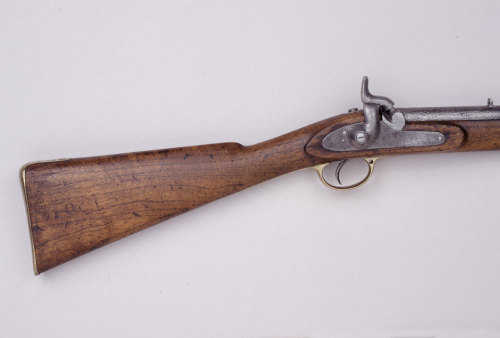The Enfield Model 1858 India Service Musket,In 1857 Indian troops under the employ of the British Ea
The Enfield Model 1858 India Service Musket,In 1857 Indian troops under the employ of the British East India Company openly rebelled against the British Indian Government after being issued paper musket cartridges greased in beef fat and pork fat. While the beef fat bullets greatly offended the religious beliefs of the Indian soldiers, there were several much more profound issues the Indians had with British rule in India. The Sepoy Rebellion would last over a year, and was an especially bloody war with horrific atrocities committed by both sides.After the Sepoy Rebellion, the British government would end the administrative powers of the British East India Company and take direct control over governing affairs in India. Among the new reforms was the adoption of a new service arm for the Indian Army. The Pattern 1858 Enfield were constructed from earlier P1853 muskets with some very specific modifications. First, the rifling of the musket was reamed out, turning the musket into a smoothbore. Secondly the adjustable rear sight of the P1853 was removed and replaced with a crude fixed sight. Both of these modifications were intended to greatly reduce the accuracy of the P1858. The British feared another Indian rebellion, so British policy hence forth was to arm Indian troops with firearms that were greatly inferior to the standard British issue. Later the Pattern 1859 was introduced, which were smooth bore musket produced on their own rather than modified forms of the P1853. -- source link
Tumblr Blog : peashooter85.tumblr.com
#guns#firearms#rifles#muskets#musket#enfield#history#india#indian history

